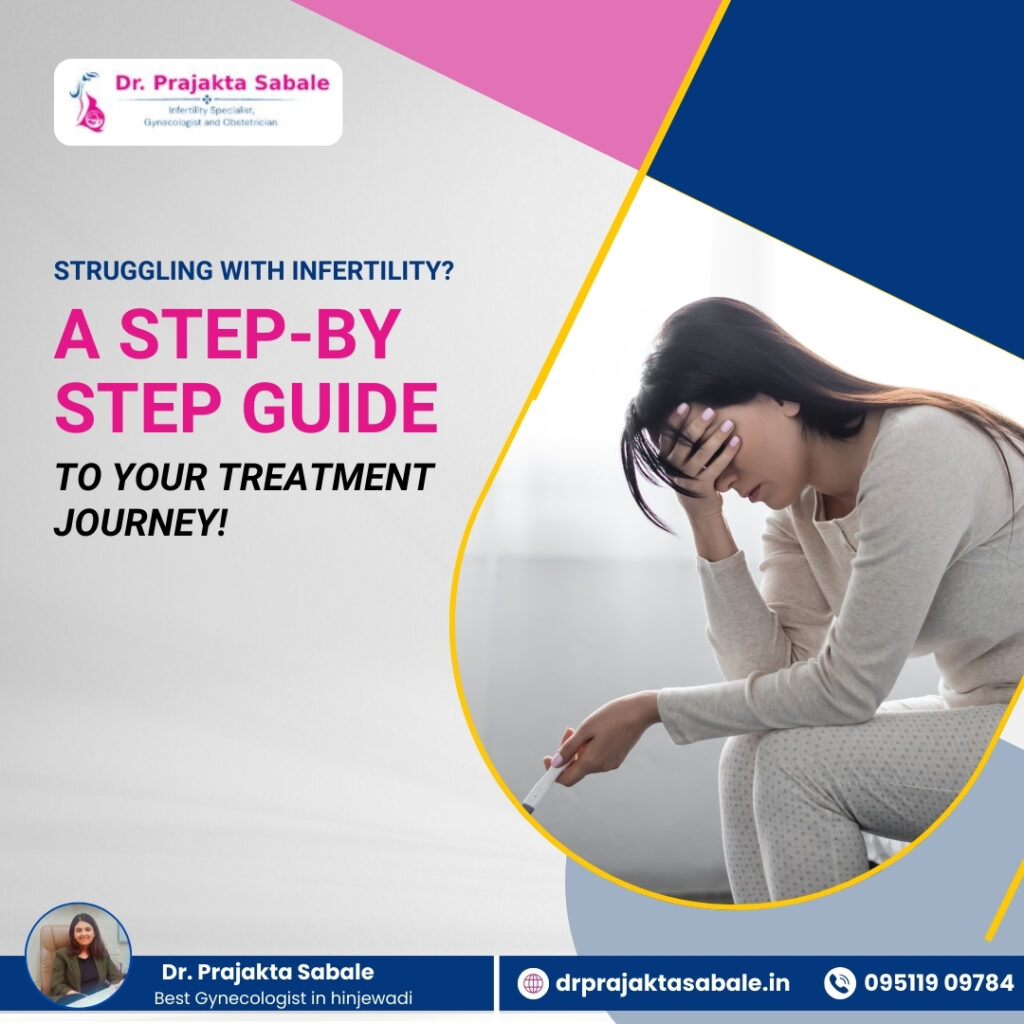Infertility can be a challenging journey for couples hoping to conceive, but understanding the process can make it easier. The good news is that modern medicine offers a variety of fertility treatments, and understanding the process can help ease some of the uncertainty. This step-by-step guide will help you navigate the treatment journey with greater confidence and clarity.
Step 1: Understand the Causes of Infertility
The first step in your infertility journey is understanding what may be causing the difficulty. Infertility can arise from a variety of factors, and sometimes the cause is unknown. For women, common causes include:
- Ovulation disorders (e.g., polycystic ovary syndrome or PCOS)
- Blocked fallopian tubes
- Endometriosis
- Age-related factors
For men, common causes include:
- Low sperm count or motility
- Varicocele (enlarged veins in the scrotum)
- Hormonal imbalances
Both partners should undergo evaluations to identify the cause of infertility, which will determine the appropriate treatment options.
Step 2: Consult a Fertility Specialist
Once you’ve undergone the necessary tests, it’s time to consult a fertility specialist. These doctors are trained to assess your specific condition and recommend the most effective treatments based on your individual circumstances. A fertility specialist may also offer insights into lifestyle changes that could improve your chances of conceiving, such as dietary adjustments, exercise, or stress management.
Step 3: Explore Fertility Treatment Options
There are several fertility treatment options, and the one that’s best for you will depend on your diagnosis and personal preferences. These treatments can range from minimally invasive procedures to more complex interventions. Here are some common fertility treatments:
- Medications:
- Clomiphene Citrate (Clomid): A medication that stimulates ovulation.
- Gonadotropins: Injectable hormones that help stimulate the ovaries to produce more eggs.
- Metformin: Often used for women with PCOS to regulate insulin levels and improve ovulation.
- Intrauterine Insemination (IUI):
- IUI is a relatively simple procedure in which sperm is directly inserted into the uterus during ovulation, increasing the chances of fertilization.
- In Vitro Fertilization (IVF):
- IVF is one of the most well-known fertility treatments. It involves stimulating the ovaries to produce multiple eggs, which are then retrieved, fertilized in the lab, and implanted into the uterus. IVF can be used for a variety of conditions, including blocked fallopian tubes, male factor infertility, and unexplained infertility.
- Egg or Sperm Donation:
- In cases where egg or sperm quality is a concern, donor eggs or sperm may be used to achieve pregnancy.
- Surrogacy:
- If carrying a pregnancy is not possible due to medical reasons, a surrogate may be used to carry the child.
Step 4: Consider Emotional and Psychological Support
Infertility treatment can take a toll on your emotional well-being, so it’s important to seek support. You may experience stress, anxiety, or feelings of isolation during this journey. Therapy, support groups, and talking to loved ones can help you cope. Your fertility clinic may also offer counseling services.
Step 5: Be Prepared for the Ups and Downs
Infertility treatment is rarely a straight path, and it’s common to experience setbacks. Not every cycle will result in a pregnancy, and sometimes additional rounds of treatment are necessary. Patience and persistence are key. It’s important to manage your expectations and have a support system in place to help you through the highs and lows.
Step 6: Embrace the Decision That’s Right for You
Every fertility journey is unique, and there’s no “right” way to proceed. Whether you choose to undergo IVF, consider alternative methods, or decide to take a break, your decision is valid. Take the time you need to evaluate your options, and make choices that align with your values and circumstances.
When to Consult a Gynecologist
Here are some key indicators that it’s time to make that appointment:
- Trying to Conceive for Over a Year
- Irregular Periods
- Age-Related Concerns
- Previous Miscarriages
- Painful or Heavy Periods
- Male Factor Infertility Concerns
- Known Health Conditions
If you have any of these conditions and are struggling to conceive, seeking a gynecologist’s help can provide clarity on how to manage your fertility while managing your health.
Conclusion
Infertility can be a challenging journey, but seeking professional help early can significantly improve your chances of conceiving. If you’re struggling to conceive, it’s essential to consult an infertility specialist in Hinjewadi to explore your treatment options. Dr. Prajakta Sabale, an expert in infertility treatment in Hinjewadi, offers compassionate care and personalized treatment plans to help you on your fertility journey. With the right support, the path to parenthood can be brighter and more achievable. Don’t hesitate to reach out and take the first step toward building the family you’ve always dreamed of.
Final Words!
Infertility is a personal, emotional, and often challenging journey, but you are not alone. There are many treatments available, and with the right support, you can navigate this process with confidence. Trust your body, your doctors, and your decisions as you move forward.

